No products in the cart.
Active filters
Cyclades: Legendary Edition
In the Cyclades archipelago, off the shores of a divided Greece, players develop their cities and compete for supremacy under the watchful gaze of the gods.
In Cyclades: Legendary Edition, designers Bruno Cathala and Ludovic Maublanc have reworked the Cyclades base game and its many expansions to make gameplay more dynamic and fluid.
[DAMAGED] Monumental Classic: Lost Kingdoms
The "Lost Kingdoms" civilization box is the first expansion to Monumental, providing you with 4 new Civilizations to play as: the Aztecs, the Mughals, the Amazons and the Atlanteans (all completely compatible with the 5 Core civilizations and the African Empires civilizations) as well as more Terrain tiles including new terrain types (desert, jungle, islands, Aztec pyramids), and enabling an all-new 5 player mode!
Monumental Classic: Lost Kingdoms
The "Lost Kingdoms" civilization box is the first expansion to Monumental, providing you with 4 new Civilizations to play as: the Aztecs, the Mughals, the Amazons and the Atlanteans (all completely compatible with the 5 Core civilizations and the African Empires civilizations) as well as more Terrain tiles including new terrain types (desert, jungle, islands, Aztec pyramids), and enabling an all-new 5 player mode!
Monumental Classic
Monumental is a next generation civilization game by Matthew Dunstan, packed with innovative mechanics taking the best of deckbuilding and 4X games.
Monumental Classic: African Empires
In Lost Kingdoms, each civilization comes with its own deck of cards including cultural policies, Knowledge and Buildings as well as new very specific Provinces per civilization: pyramids for the Aztecs, desert for the Mughals, jungle for the Amazons and islands for the Atlanteans
Tiny Epic Kingdoms (2nd Edition)
You are a tiny kingdom with big ambition. You want to expand your population throughout the realms, learn powerful magic, build grand towers, and have your neighbors quiver at the mention of your name. The conflict? All of the other kingdoms want the same thing and there\'s not enough room for everyone to succeed.
Magellan: Elcano
September 20, 1519: The activity on the deck is frantic. Sailors run from side to side, loading the final batch of supplies. On the royal stand in the harbour, the preparation is intense. The King has arrived to watch the fleet set sail: five mighty ships, commanded by five shrewd captains whose intelligence will be put to the test in the years to come. The cannons roar, giving the departure signal. The anchors are pulled up, and the sails unfurled. The voyage that will circle the globe has just begun.
Río de la Plata
In 1536 Pedro de Mendoza founded the city of Buenos Aires along the Rio de la Plata river. After five years, the settlers were forced to leave the city exhausted by difficulties and the continuous attacks from the Querandies natives.
20th Century
In the 20th Century, every region strives to develop. Some become financial leaders, others become centers of learning. Science and commerce propel nations into the future – but what kind of future? Growth produces waste, and advances come with a cost to the environment. How will you mitigate the inevitable ecological catastrophes?
Phoenicia
Empires rise and fall. In the buffer areas and crossroads between civilizations, however, a clever ruler can sometimes adopt new ideas, establish trade, and found a city state.
Caribbean
The board shows the Caribbean in the 18th century. Six pirate ships lie in wait on the sea. They are ready to pillage the rich ports or to rob the booty from other ships. The sea is divided into spaces. Each player has three safe havens marked in his color on the board.
Empire's End
You lead a grand civilization at the height of its influence, but can you save it from collapse? In Empire\'s End, 2-4 players compete to keep calamity at bay. Empire\'s End marries the intuitive and elegant mechanism of reverse-bidding with engine-building, long-term planning, and strategic depth. The result is a game with a quick tempo, abundant tension, and multiple challenging paths to victory.
High Frontier 4 All - Module 1: Terawatt & Futures
This terawatt module introduces two new patent decks: Freighters (1B) and GW Thrusters (1C). Freighters are a new type of patent card allowing the transport of valuable factory goods back to LEO. GW thrusters are more powerful and efficient versions of the MW thrusters of the core game, allowing your Spacecraft to reach the outer planets more easily. This module also optionally introduces Futures, special game goals to earn victory points.
High Frontier 4 All - Module 2: Colonization
This colonization module introduces orbital space colonies called Bernals (2B) and space pioneers called Colonists (2C). These two types of cards extend the core game to go beyond industrializing and exploiting the resources of the solar system to colonizing and settling the solar system. Bernals upgrade your Colonies to give you extra VP, according to the Hydration of nearby Factories. They also award Colonists, which you can take to Sites to perform extra Operations there.
High Frontier 4 All
This is the 4th ed of Phil Eklund\'s signature game High Frontier. It started with Rocket Flight (1999), a game with the vision to let "Each player start as a spacefaring company in the year 2020 trying to make a profit in trade and technology development." Now that we are at that year, High Frontier has evolved into a modular system open to enthusiasts to keep it updated ever farther into the future.
High Frontier 4 All - 6th Player Add On
All the components needed to play the High Frontier 4 All core game, module 1, and module 2 as a 6-player game.
The Great Zimbabwe
The Great Zimbabwe is a game about building a trade based civilization in ancient Africa. It has been inspired by the old kingdoms surrounding the Great Zimbabwe, a world heritage site in Southern Africa. Far into the previous century, colonial governments denied that a civilization that produced such impressive monuments and beautiful artwork could have been African in origin. But of course, this civilization was African, and the country of Zimbabwe itself was proudly named after this impressive cultural heritage.
Assyria
2000 BC. A new empire is about to emerge in the north of Mesopotamia.
Nomadic tribes gather under the leadership of Assur, a city-state dedicated to the cult of the powerful mountain god.


![[DAMAGED] Monumental...](https://kienda.co.uk/6066-home_default/lost-kingdoms-classic-monumental-ingles.jpg)
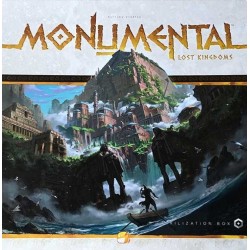
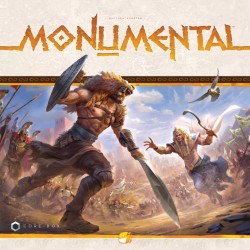
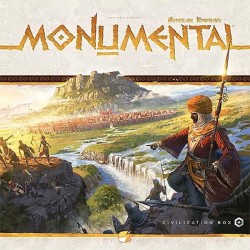
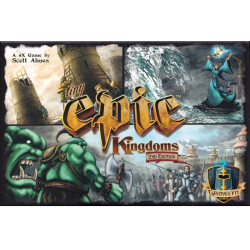
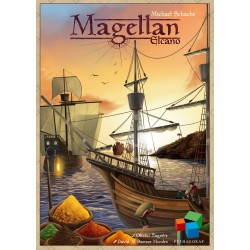
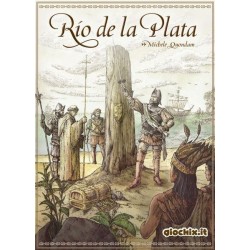

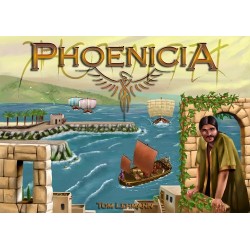
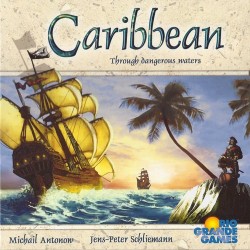
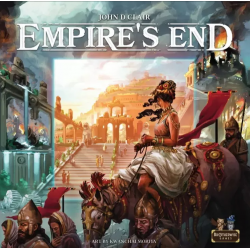
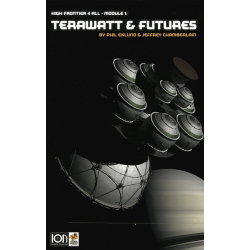
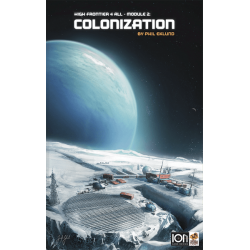
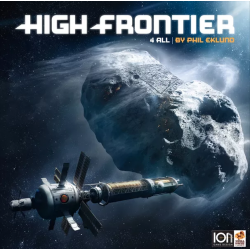
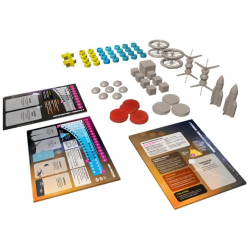
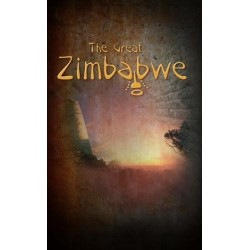
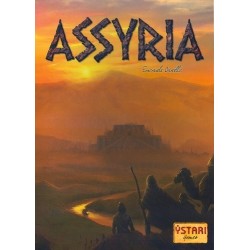

![[DAMAGED] Monumental...](https://kienda.co.uk/6066-medium_default/lost-kingdoms-classic-monumental-ingles.jpg)















